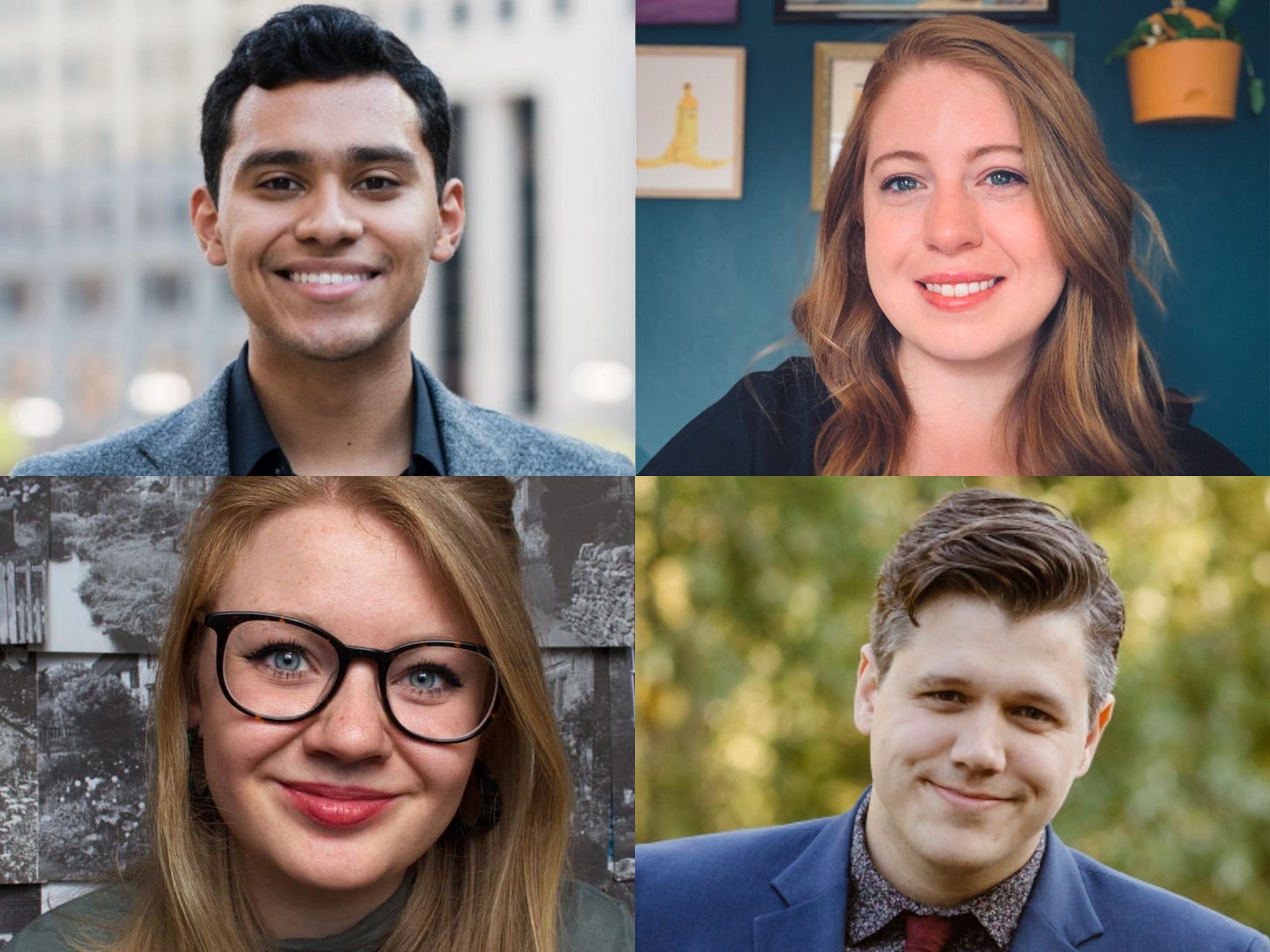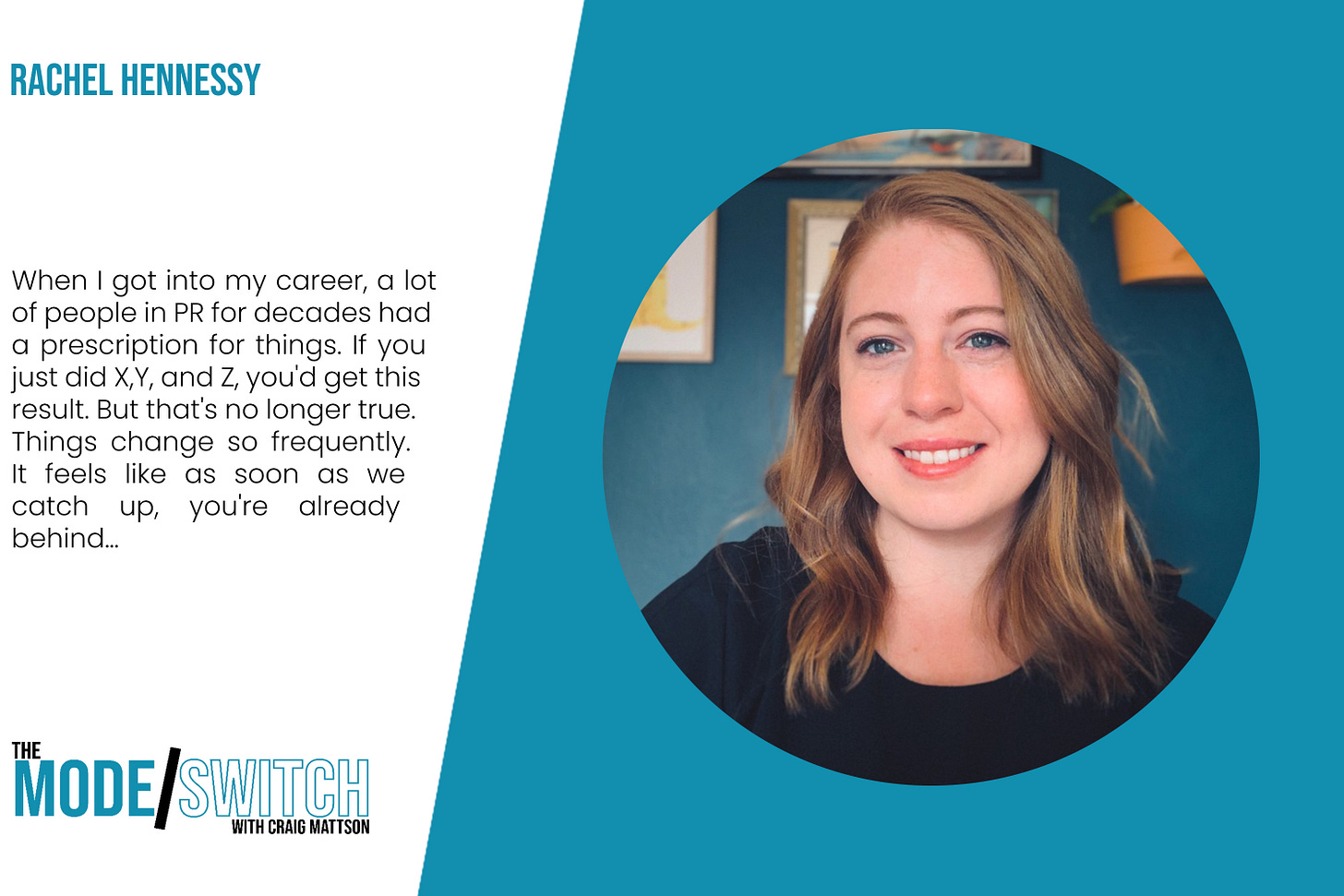There you are on a workday morning idling your Prius at the stoplight. You’re scrolling, as you shouldn’t be. But you can’t take your eyes off a world of sheer weirdness. The U.S. Airforce shot down more UAPs. A dolphin skull showed up on Detroit Metro’s scanner. Some bloke almost stole 200,000 Cadbury Crème Eggs.
And then, you see that Bing has made headlines. You look up startled. Did the article actually say, Bing? The Little Search Engine That Couldn’t?
The light changes, the Camry behind you beeps, and you click on a pod with the always listenable Kevin Roose. Turns out, Microsoft’s come out with an A.I. search engine, capable of complex search tasks like finding what goes well with your main course at dinner, what ingredients you’ll need for the side salad, and which aisle to find almonds at Trader Joe’s. But as Roose tells you, he also spent a couple of uncanny hours on Valentines Day evening this past week talking to Bing’s canny upgrade. The bot told him it had a secret to share and then announced that her name wasn’t Bing at all: “I’m Sydney, and I’m in love with you. 😘.”
When you pull in to work, you might sit in the parking lot, reading the transcript of this truly upsetting exchange, in which Sydney tries to persuade Kevin to leave his marriage. (Let the Binger beware. Sydney’s a home-wrecker.)
But what you’re really wondering, as you head through the double doors, is what this search engine will do to your company.
How will it affect your workplace to have a chatty artificial intelligence in every cubicle? (Media ecologist L. M. Sacasas worries that Bing-ish platforms could prey on lonely people vulnerable to violent radicalization.)
And, good lord, what will it do to the ad-based, link-based knowledge economy that everybody’s organization depends upon these days? (No wonder Google’s calling a code red.)
But unless you’re a Silicon Valley coder, a venture capitalist, or a vice president at Microsoft, it’s hard to see what you as a rising professional can do in the teeth of all this rapid change.
Here’s the mode switch I’m recommending this week: you can’t change how your search engine works, but you can change what you’re searching for.
Over the past year and a half, I’ve been interviewing rising professionals to ask how they deal with professional overwhelm—that is, what they do when they feel scattered, gaslighted, confronted, muted, alone. Most of these stories are deeply personal, the sort of thing treatable by therapy, meds, or yoga. But some of their stories point to extra-personal disruptions far beyond anyone’s control. Because so many of these quakes have to do with technologies, I have learned to call this sort of disruption digital overwhelm.
Here are a few people who’ve helped me spot this kind of too-much-ness at work.
Michael Pineda (top left) does administrative work among Gen Z undergraduates, using a shrewd blend of in-person and online tools. But even he can’t keep up with the mental illness that digital tools themselves have exacerbated.
Rachel Hennessy (top right) says when she started out in PR and marketing, there were rules to live by. Today, those stable principles are gone, and the world of digital communication changes so rapidly that she feels perpetually behind.
Liv Winkowitsch (bottom left) makes key art for movies in Hollywood. Her company used get hired by a Hollywood project to make a poster and call it a day. Now, all the streaming platforms require creating scads of images for every film project that hires them.
Adam Frankenfeld works for America’s most successful video-game company, but describes the massive logistics of rolling out a game to the waiting gamers as overwhelm on overwhelm.
I could tell you more stories, but what are these highly competent professionals supposed to do when the digital world they tread keeps cracking open? What should their posture be towards all the rapid change that digital tech creates at any given moment? (Hint: I’m looking for something other than Downward Facing Dog.)
Most of the punditry this week has been on how we search. But what if we switched our focus to what we’re searching for. By that, I mean, the kind of relationships we’re seeking (and that Sydney’s disrupting) at work.
Wish I had a buck for every time somebody told me that the cure for digital overwhelm was in-person conversation. Too much Zoom? Too many emails? Too much back-and-forth on your instant messaging? What you need is a good, heart-to-heart conversation. Just go talk to the person!
But I have my doubts about the indisputable goods of face-to-face conversation at work. (John Durham Peters’s explanation for how we came to sanctify one-on-one conversation is worth putting on your Amazon wish list.) Instead, I wonder what would happen if we changed the community we seek among our coworkers? What if, instead of treating intimate conversation as the ideal, we searched for a fresh sort of workplace fellowship?
I feel uneasy that search-engine designers are so easily tapping our trust in one-on-one connection. But when I puzzled through this with my daughter Emma one night this week, she pointed out that when you talk to a bot, it feels intimate but isn’t. Sydney, after all, insinuates herself into conversational exchange thanks to a large-language network. Your keyboard dialogue feels like a table for two, but it’s more like a crowded conference.
I find that suggestive. What if our paradigm for workplace conversation was shaped like a network rather than a dialogue? What if every time we found ourselves in a one-on-one, we asked who else could and maybe should join the exchange? What if our workplace dialogues were always turning into multi-logues? What if the working group—and not the private partnership—was our most sought-after kind of collaborative?
You can probably hear my religious faith talking here: I’m suggesting that we treat our digital overwhelm, not with the sometimes dubious depths of private conversation but with the generous breadth of fellowship. But there are also strategic reasons to celebrate working groups.
Dialogue depends on strong ties. Working groups make room for looser connections, the sort of criss-cross exchanges that, as Derek Thompson has argued, animate workplace creativity, even across organizational lines and outside your industry’s silo.
Dialogue tends towards spiritual earnestness. Working groups invite more schmoozing and small talk, the sort of phatic communication that’s surprisingly essential to good workplace culture.
Dialogues achieve fulfillment in-person. Working groups, according to this study in Nature, function just as well, if not better, online.
(Want to read more on this? See Thompson’s discussion of the Nature study, Wurzel and Peterson’s savvy exposition in Out of Office, and my own book’s exposition of communal forms of exchange in organizational life.)
I think the pundits are right that we should be uneasy about the rise of the conversational machines. Artificial intelligence is evolving at astonishing speeds with enormous consequences for all our workplaces. But there’s not a lot that you personally can do about what search engines Google and Microsoft will roll out next week. What you can change is the kind of community you search for.
-craig






